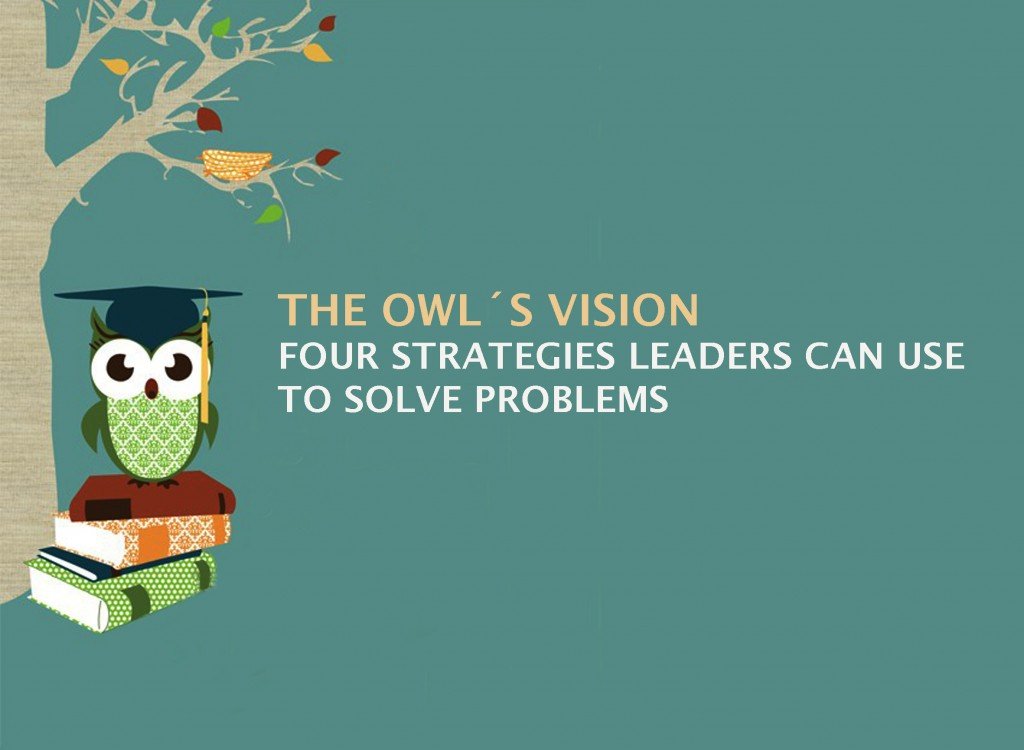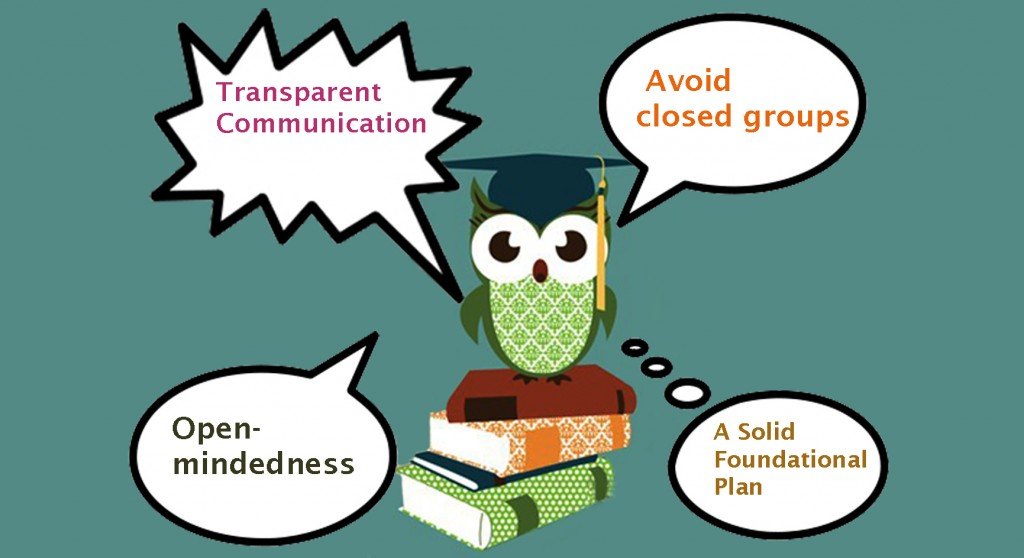Every one knows this: as a leader you should expect that what you will face on a daily basis in your working life is an extensive accumulation of challenges, tribulations, difficulties, complications , troubles, efforts… in one word, problems! That is no big news and that´s life. Karl Popper, one of the most influential 20th century philosophers of science, once said: “All life is problem solving” and we could extend this to a leadership maxim: “All leaders are problem solvers”. Being a leader means not only that you are problem solver but that you are masterful in solving these. But sometimes challenges accumulate at such a fast pace, that we might be inclined to figure out quick solutions, band aids hurriedly put over the most stressful situations, to gain some time until we deal with the next problem, by repeating the same superficial strategy. This won´t certainly solve anything and problems might just become more difficult and accumulate until chaos is installed. One way or another, one thing is certain: problem, challenges, difficulties, complications, will never stop showing up because that is part of the job of running a business. It is therefore key to look carefully at what the word problem means to you, what are the feelings it triggers in you, and what strategies you use to approach these.
What is a problem? And what do you feel when you picture yourself facing a problem? Most people sense problems with a deep sensation of fear, as impediments, obstacles which hinders the achievement of a particular goal, objective or purpose, such as our access to our desires and dreams. To blame the workplace or others as the source of the difficulty in finding solutions can look as well as a natural tendency. The workplace is an environment that finds us dealing with individuals bringing their personal luggage and ways of facing problems. Many of these are still engaged in old school schemes of corporate politicking, self-promotion, power-plays and ploys. Then there are the situational obstacles of scarcity of budgets and resources, the prevalence of closed groups in a organization , and many other random circumstances that might difficult in a exasperating way the solution of problems.
But the best leaders overcome these with a different approach to problems that is based on a different feel of the word. The word “Problem” comes from the greek word πρόβλημα , problema that is made up from προ- (pro-, “in front of”) and βάλλω (ballo, “to throw, to cast, to hurl”). How to anticipate the trajectory of the casting of something that has an hindrance in front of it?
What I propose is to rely on what I call “a Owl´s vision”, which means, looking at problems with the wiseness of Owls. Owls, mythologically considered to be sage birds, have exceptional sensorial properties such as a sharp circular vision and oustanding hearing properties. Leaders should therefore develop in themselves sharp observational skills, that enable them to look at problems with the same type sensorial perception. That different perception will transform a problem into a meta–problem. This perception means to look at problems from above with a silent and detached contemplative mind, that can see the situation in all its complicated intricacies both in detail and as a whole. With such a perception, leaders will then see how problems dissolve in front of their eyes and become miraculously transformed into opportunities. Opportunity comes from the latin phrase: ob portum veniens (“coming towards a port”), and by the end of the day, to arrive to a safe and welcoming port, is what a leader wants.
Some tools that might guide you into having that owl´s circular type of vision, is first and foremost to abandon the usual tendency of tackling a problem with a linear “fight or fly” approach that will just create the next problem in line. To see the possibilities lying within a problem in order to transform it into an opportunity, four skills should be developed:
1.Transparent Communication
Problem solving requires transparent communication where everyone’s concerns and points of view are freely expressed. Effective communication towards problem solving happens because of a leader’s ability to facilitate an open and non-judgmental dialogue between people in his or her team, who trust her intentions and feel that they are in a safe environment to share why they believe the problem happened and that are willing to find specific solutions. The best way to attain this is to be a role model: the leader should be transparent, direct, clear in his or her communication, should feel deeply what he says and should act on it.
2. Avoid Closed groups
Transparent communication requires you to break down closed groups, as these tend to have hidden agendas. A leader with a circular Owl´s vision should focus in developing a work environment that has no thick walls but transparent ones, that take everyone into consideration, and that should just focus in operating for a common good.
3. Open-mindedness
To be open-minded should be tackled in a profound way. Let´s face it: the tendency to look at others in your workplace as trouble makers that seem to enjoy creating unnecessary chaos, is no sign that you are open minded. To continue to look at others as adversaries means you are not facilitating transparency and that you will never find any successful and long standing effective problem solving strategy. The key issue here is to continue to develop in yourself the meta-vision that enables you to see and understand why other people have different approaches to problems, and to continue to role model in yourself , a way to relate to others, that is fixed on finding solutions that help everyone, by helping the organization.
4. A Solid Foundational Plan
An effective leader matures and develops through experience a foundational plan of action, that is sketched well in advance. This means that you have before hand a concrete strategy of problem tackling, made up with a clear sets of rules of how problems to come should be approached and managed. This means that you are able to forecast the unexpected well in advance and that you are aware of the strengths of the different people in your team. But this strategy is not a rigid one: it should be open to the unexpected as each situation has its own nuances that may require a distinct plan towards its resolution. Taking a little time to clearly think about the new situation is beneficial.
Becoming a mature leader means that you apply each of these lessons step by step, gradually developing yourself into becoming very good at mastering solutions. Each experience teaches us all new things. To embrace problem solving with Owl´s circular vision is like looking for the hidden unseen treasure, the opportunity, that is present in each situation.

Maria Fonseca is the Editor and Infographic Artist for IntelligentHQ. She is also a thought leader writing about social innovation, sharing economy, social business, and the commons. Aside her work for IntelligentHQ, Maria Fonseca is a visual artist and filmmaker that has exhibited widely in international events such as Manifesta 5, Sao Paulo Biennial, Photo Espana, Moderna Museet in Stockholm, Joshibi University and many others. She concluded her PhD on essayistic filmmaking , taken at University of Westminster in London and is preparing her post doc that will explore the links between creativity and the sharing economy.






























